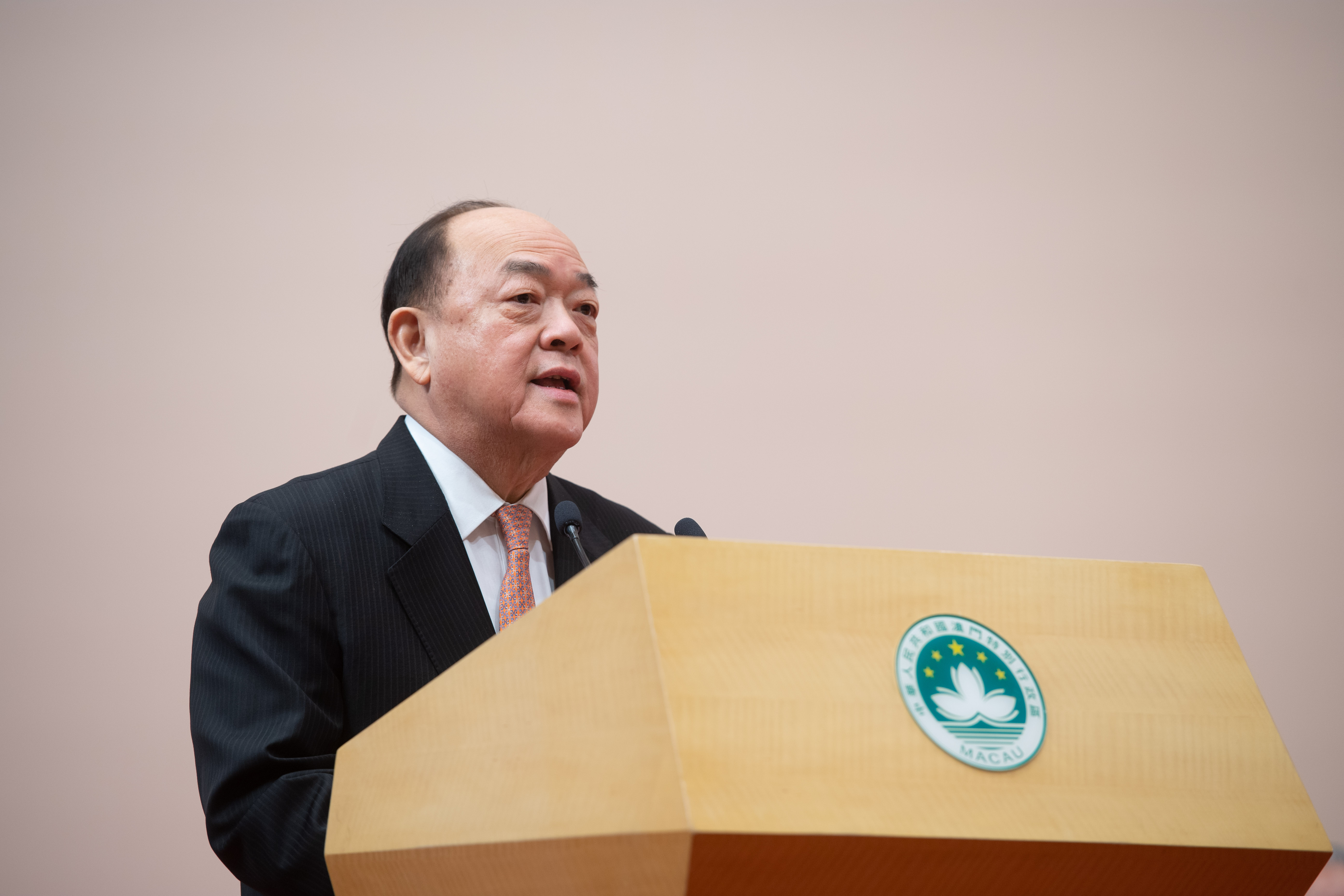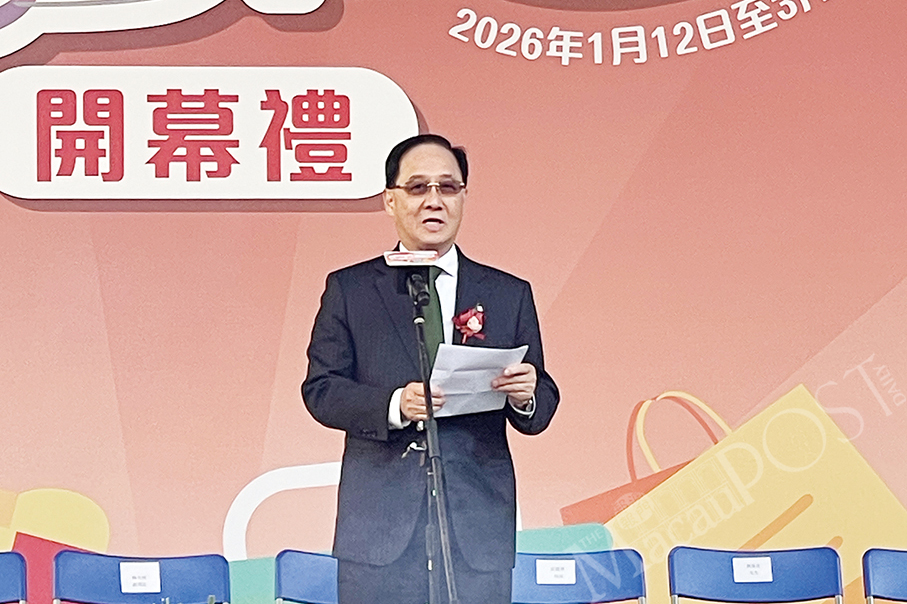Chief Executive Ho Iat Seng said today that "anything is possible" concerning the timing of the bidding process for Macau's gaming concessions which expire in June 2022.
Ho made the remarks when asked about the matter by the media on the sidelines of a reception that marked the 21st anniversary of the establishment of the Macau Special Administrative Region (MSAR).
The chief executive told reporters that the government is currently drafting amendments to the gaming industry law, adding that due to the impact of the COVID-19 pandemic and preparations for next year's legislative elections, a public consultation on the amendment bill could only be held in the second half of next year.
Earlier this year, the government said the public consultation process was slated for the first half of next year, while the amendment bill was scheduled to be submitted to the legislature for debate, review and vote in the second half of 2021. Next year's direct and indirect legislative elections are slated to be held in the autumn.
Ho said that the gaming bidding process was related to Macau's socio-economic development and a "very sensitive" matter. He insisted that he would not comment on predictions concerning the timing of the bidding process, pointing out that the government is still preparing the relevant legislation.
"Anything is possible, but it must be done in accordance with procedures," Ho said, adding that he has been in touch with the gaming industry about the issue. He also said that the relevant information would be released to the public "in due course."
Macau's gaming industry comprises three concessionaires (SJM, Wynn and Galaxy) and three so-called sub-concessionaires (Venetian, Melco Crown and MGM).
The government has said that it plans to put the gaming concessions and sub-concessions out to tender, stressing that there will be no "renewal" of its current agreements with the six operators.
The current gaming industry law only allows a maximum of three concessionaires, because of which the other three operators are formally considered sub-concessionaires.
Informed sources have told The Macau Post Daily that the current situation of concessionaires and sub-concessionaires could be abolished by the amended law no longer limiting the maximum number of concessionaires to three.
Pre-COVID-19, observers had expected the bidding to be finalised at least half a year before the June 2022 deadline. Gaming industry lawyers have told The Macau Post Daily that the chief executive could "easily" delay the process by a few years. "It would be perfectly legal," a lawyer working for one of Macau's gaming operators said when asked by The Macau Post Daily about the issue, adding, "Ho is a pragmatist, he does what he thinks is best for Macau and the whole country." The lawyer asked not to be named for professional reasons.
COVID-19 jabs to cost govt 500 patacas per person
Meanwhile, Ho also told reporters that the government expected to spend, on average, about 500 patacas (US$63) on its COVID-19 jabs per person.
The government has said that the vaccinations would be free and voluntary for residents.
Asked by reporters whether non-resident workers would be included in the free vaccination campaign, Ho said the government was analysing the situation, stressing that the matter was "not a big problem." He pointed out that Macau's non-resident workers - same as local residents - are also covered by the government's subsidised facemask programme. Ho acknowledged that many non-resident workers are "front-line" workers.
The large-scale vaccination drive is slated to start early next year.
The government has orders novel coronavirus vaccines from Sinopharm, BioNTech and AstraZeneca.
Macau's population stood at 682,800 at the end of the third quarter, according to official figures.
Macau's number of non-resident workers amounted to 181,631 at the end of October, according to the Labour Affairs Bureau (DSAL), including 114,454 mainland Chinese and 31,813 Philippine nationals.

Photo by Xinhua








